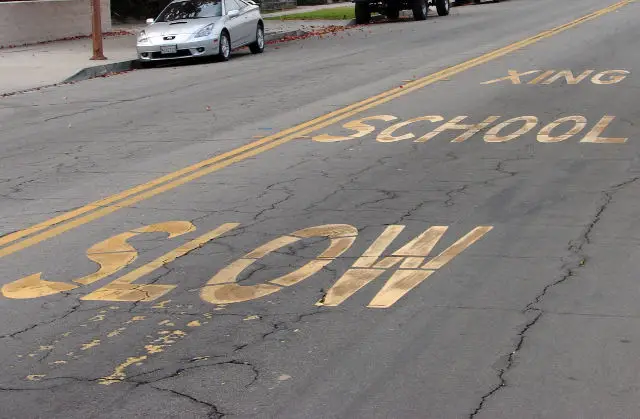A wide-ranging report into Ofsted school inspections by the Education Policy Institute’s (EPI) has been published this month.
With the majority of Isle of Wight secondary schools that have received an Ofsted rating being found to ‘Require Improvement’, this report is of great interest.
The report reveals that Ofsted was more likely to judge schools with more pupils receiving free school meals (FSM) as “requiring improvement”, whereas schools with more advantaged pupils were more likely to be rated “good” or “outstanding” by Ofsted.
Deeply worrying findings
The question arises that if the Ofsted ratings were based on ‘value-added progress’ (what’s this?), could it result in more schools with disadvantaged pupils scoring more highly?
In response to the EPI report, the general secretary of the Association of Teachers and Lecturers (ATL) has published an article this week claiming that, “If schools with disadvantaged intakes were judged fairly, many would have much higher Ofsted grades”.
Dr Mary Bousted (in a TES blog) says she believes the outcome of the report should give school leaders serious concern. She said,
“Everyone with an interest in education, parents, teachers and politicians, should be concerned that Ofsted, an agency which costs taxpayers over £150 million a year, appears to make inspection judgements based on the level of deprivation of the school’s pupils, rather than on the quality of the education it provides.
“It is deeply worrying that the Education Policy Institute (EPI) research clearly shows that outstanding Ofsted ratings are much more likely to be given to schools with disproportionately low percentages of pupils on free school meals or low prior attainment. And that schools with the most socially advantaged pupils are six times more likely to be rated outstanding as schools with more disadvantaged children.”
Child poverty and Island schools
A recent report revealed that over 7,400 children on the Isle of Wight are living in poverty. That’s 28.53% of the child population of the Island.
The Isle of Wight has ten secondary schools, plus two Independent Schools. Of those, excluding the Special Schools, just one is rated as Good by Ofsted.
Good – Christ The King College
Requires Improvement – Carisbrooke College
Requires Improvement – Medina College
Requires Improvement – Ryde Academy
Requires Improvement – Sandown Bay AcademyAwaiting inspection – Cowes Enterprise College
Awaiting inspection – Isle of Wight Studio School
Awaiting inspection – The Island Free SchoolGood – St Catherine’s School (Special)
Good – St George’s School (Special )
Many of the schools have seen great improvement in the last three years following previous Inadequate ratings.
Failure to spot decline in academic performance
The EPI report concluded that “there may indeed be some room for improvements to the school inspections system in future”.
Dr Bousted urges Ofsted to take the report seriously, adding,
“Ofsted needs to address its apparent failure to spot the decline in academic performance in schools that have previously been rated good or outstanding. There is no excuse not to treat schools fairly.
“Ofsted must take this report seriously. It must examine its inspection methodology, and outcomes, and ask itself a fundamental question: Are its inspection gradings more of a judgement on the percentage of pupils on free school meals in a school than on the quality of education it provides its pupils? The EPI research suggests that this is the case.”
Isle of Wight ‘ghetto’
During summer 2016, it was revealed the former chairman of Ofsted, David Hoare, told a conference audience that during dinner party chatter he describes Isle of Wight as “a ghetto” with “inbreeding” and a “mass of crime, drug problems, huge unemployment”.
The report resulted in huge outcry, not just on the Island, but across the country. Within two weeks he had resigned from the post and replaced by an interim Chairman.
Education Policy Institute report
The Education Policy Institute report asks whether Ofsted acted in a timely manner to identify schools with substantial declines in performance and whether Ofsted grade schools with differing pupil intakes fairly.
Click on the full screen icon to see larger version
Source: TES





